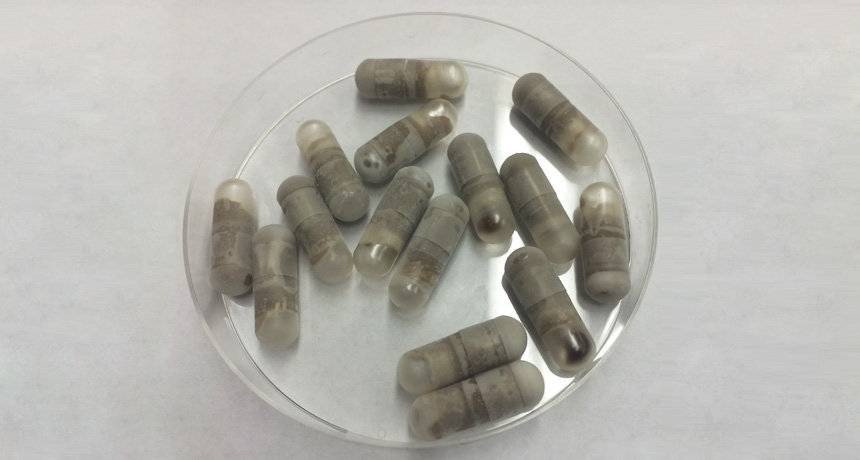Poop-transplant pills treat intestinal infection
Freezing donated gut bacteria keeps them fresh to fight Clostridium difficile

CHILL PILLS Freezing healthy gut bacteria sieved from poop extends their shelf life for later use in treating C. difficile infections.
I. Youngster







